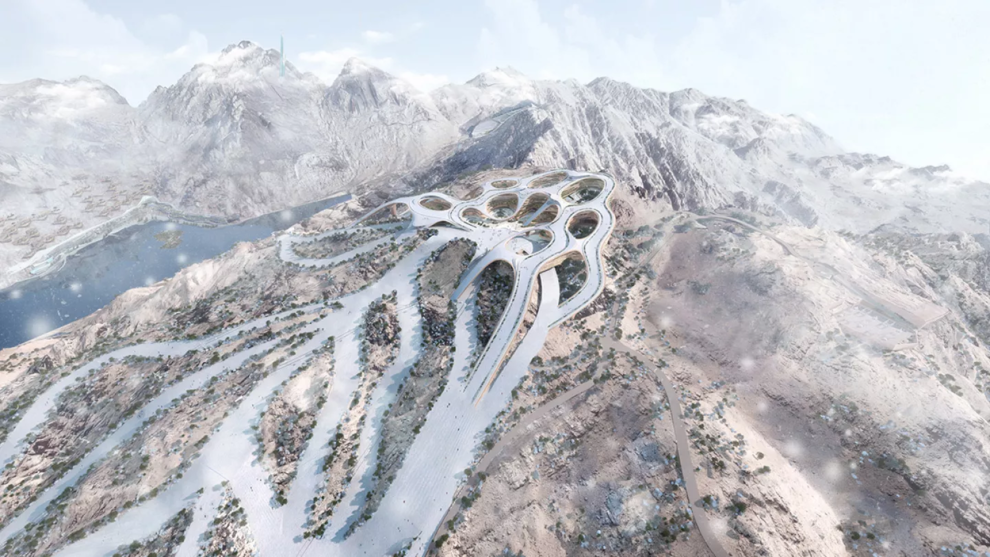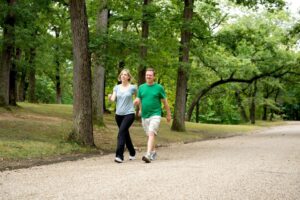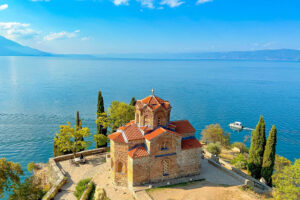The ski resort, Trojena, will be available for skiers for three months every year, while the rest of the time tourists will be able to do watersports and mountain biking.
Nothing could be further from the image most people have of Saudi Arabia than a winter wonderland. And yet the country is building exactly that within the mountains of Neom, its €461 billion ($500 billion) ‘city of the future’.
This new urban project is being constructed in the northwest region of the country, in the province of Tabuk. It will host an otherworldly ski resort named Trojena, featuring a blend of dizzying real and virtual architecture, a man-made lake and mesmerising views.
The idea of skiing down the slopes of Saudi Arabia’s Neom sounds ludicrous – and yet Clark Williams, who manages Marketing and Communication for Neom, tells Euronews Travel it’s easier than you might think.
“People go like, wait a minute, there’s snow in Saudi Arabia?,” Williams says. “The truth is that we just need -3 degrees Celsius in order to create snow in Neom and we can do that for three months of the year.”
In the mountains close to Neom, the temperature naturally drops below 0 degrees in winter.
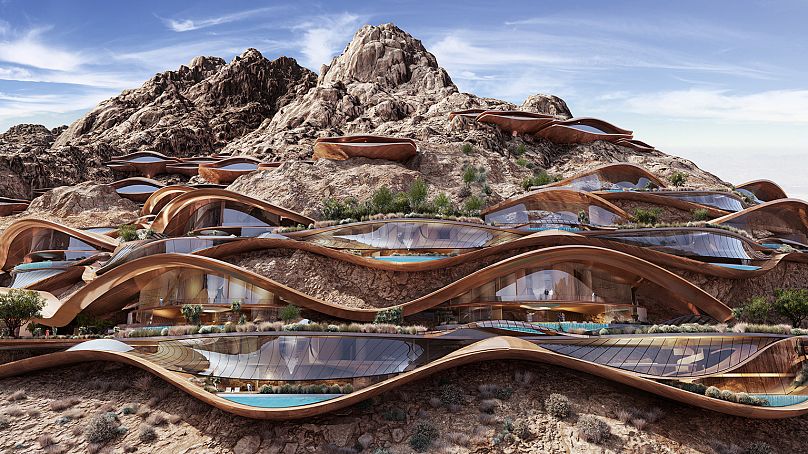
With sustainable tourism in mind, Trojena’s builders claim they are focusing on minimising water use and maximising water recovery when making snow.
“In our snowmaking, we’re going to utilise as many sustainable resources as possible, whether that’s solar or whether that’s wind power,” Williams explains.
“We’ll also be using water from our desalination plant, which is a cutting-edge solution and we’re trying to collect as much water from the (snow) melt as possible.”
This water would be recirculated back into the system which creates the powder for the resort’s slopes, according to Williams.
Not just a winter wonderland
While winter offers the chance to ski down Trojena’s 36 kilometres of slopes, people would be able to enjoy the man-made lake and practise all kinds of water sports there, as well as mountain biking, during the rest of the year.
In summer, when the Gulf gets really hot, locals would be able to cool down in Trojena, where the average temperature is about 10 degrees lower than in other Saudi cities and there’s no humidity.
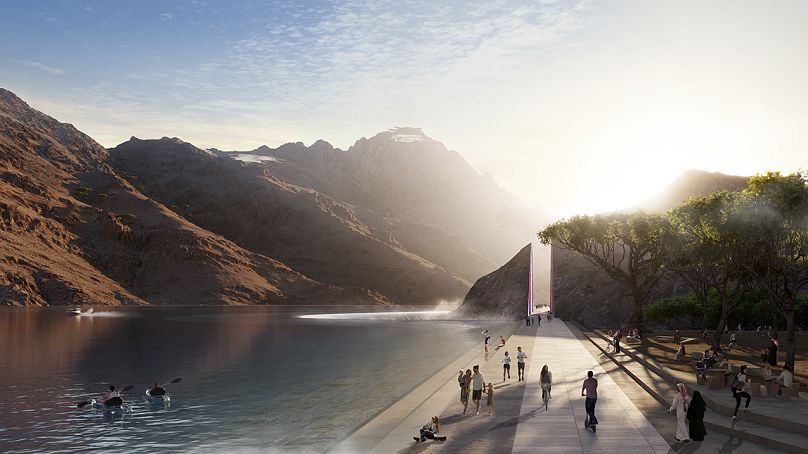
What will tourists find inside the ski resort?
Trojena promises everything tourists would be able to find in a normal mountain village.
“The concept behind the ski village is to take what you’d see in a classic mountain village and put it all in one building,” Williams says.
That includes restaurants and even a luxury wellness spa for those who need a break from the piste.
According to Williams, the ski resort is going to include several hotels that will immediately be able to host visitors when the centre finally opens in late 2026 or early 2027.
“That’s quite soon if you consider we’re creating an entirely new landscape there, with streets, bars, restaurants, and hotels all compacted into one village.”
At the moment, the project is in its first stages of development, with workers already living there.
Trojena won’t just be a playground for tourists. About 7,000 people will be permanent residents, according to current plans, able to live and work in the vertical village.
Other highlights in Neom
Trojena is only one of four major parts of Neom. It is also expected to feature the luxury island of Sindalah in the Red Sea – the first destination to open in 2024 – OXAGON, a futuristic, floating industrial metropolis, and THE LINE, a 170-kilometres-long city that would eventually house up to 9 million residents.
“Neom is one of the megaprojects that was announced as part of the Saudi Crown Prince’s vision for 2030,” Niall Gibbons, Neom’s Head of Tourism, tells Euronews Travel (?). “It’s about the size of Belgium and will welcome approximately 3.5 million tourists by 2030.”
Initially, Neom will focus on local tourism and later expand to international visitors, with 60 per cent of people coming from outside Saudi Arabia by 2030, according to Gibbons.
Neom plans to be 100 per cent powered by clean energy and reserve 95 per cent of its territory for nature. Rewilding projects in the area have already started, Gibbons says, with wild oryx and ostriches reintroduced in the desert and “giving birth to their first babies this year.”
Source : EuroNews
























